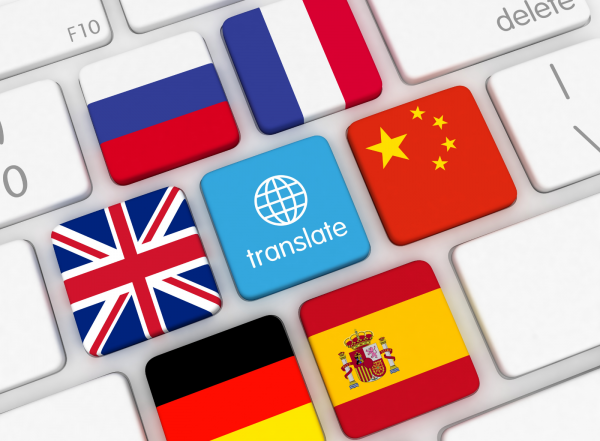Manon is in the writing process of her thesis. She wondered: "I found an interesting text in a language other than English. If I translate it, should I mention the source?"
Summary:
Manon is in the writing process of her thesis. She wondered: "I found an interesting text in a language other than English. If I translate it, should I mention the source?"
Summary:
The search for information is becoming international!
Since the arrival of the Internet, knowledge sharing has become easier and automatic translators have made accessing it much easier. Some languages are richer than others in terms of web content, for example English is the most common language on the web and accounts for more than half of all Internet data.
"English accounting for 54 percent of the top 10 million websites." "Two Worlds: Languages IRL and Online" from the website statista.com
However, depending on the subject matter, it is a good strategy to explore these different avenues and languages in order to have an adequate overview of the subject you wish to address.

The information as it is found remains to be translated. The translation may deviate slightly from the original text to improve comprehension. If you are not bilingual, you can use different translation applications through open access sites such as Google translate or Deepl Translator. Word-for-word translation is not always accurate and if you have any doubts, you can quote the sentence in its original language with quotation marks + the author and explain its meaning. You can also paraphrase the information found in your own words, without quoting the text but still mentioning the author.
You are therefore free to translate information found in foreign languages. However, it is important to cite your sources.
When the reader is interested in a subject, they often want to deepen their knowledge. The reader of your work must have the opportunity to do so with the sources cited and your well-constructed bibliography.
"Readers can use the list of references to explore a subject further and enrich their understanding. Indeed, readers can easily and quickly find the references for the works they would like to explore." "An effective bibliography: great, but how?" from Compilatio.
Where did this information come from? A magician's hat? From your girlfriend? Or a specific source? The source allows to validate the information presented and gives a real and concrete dimension to what you’ve written, thus making you more credible to the reader.
You have not created all the content of your work, and that is a fact. However, you did some research that led you to a deep understanding of the subject. This research is what makes you an expert on the presented subject, and it should be showcased.
"Have you considered this? By making the choice not to plagiarise and to provide your own ideas, you yourself become an "inventor"" "Why is plagiarism prohibited? What are my incentives to respect copyright?" from Compilatio
Doing a job that requires a lot of time and investment is always a little stressful. Save yourself the added stress of wondering if your proofreader will realize that some parts have been plagiarized and cite your sources. Build an effective bibliography and check your work with Compilatio Studium, the plagiarism checker and writing assistance software. You'll set your mind at ease, and will be better for it in the long run.
When it comes time for the oral defense of your thesis, dissertation, or assignment, the teachers will ask you specific questions. If you master your subject, it will only be a formality. But, if you have plagiarized an idea, that's when the teachers will expose you (if they haven't done so before). They will ask you for explanations to ensure that you fully understand what you have described in your brief.
"If you are not certain that you have fully grasped the author's concept, don't incorporate it in your project. You will have a hard time putting it into your own words and your teacher will quickly sense that you are uncomfortable with the theory, then will probably ask you questions specifically on this point." "The power of paraphrasing" Compilatio
Whether in their own language or not, the original author has made an effort to reflect and write and it is fair and honest to mention it to pay tribute to them. Furthermore, the law protects authors.
According to article L122-4 of the Intellectual Property Code: "Any representation or reproduction, in whole or in part, made without the consent of the author or his successors or assigns is unlawful. The same shall apply to translation, adaptation or transformation, arrangement or reproduction by any art or process whatsoever."
The answer is yes!
Some advanced tools include specific features to detect plagiarism through translation.
For example, Compilatio Magister+ offers multilingual similarity detection and provides teachers with a side-by-side comparison between the submitted text and the original source in its native language. So even if you translate content, you may not escape the vigilance of plagiarism detection software.
Moreover, if a teacher receives an alert and notices that you do not fully understand the topic, they may ask additional questions about the highlighted sections.
Instead of risking a plagiarism accusation, invest your time in honest work: cite your sources, develop your own reasoning, and showcase your personal analysis.
To answer Manon, translating without citing the original author is considered plagiarism and is called translingual plagiarism or multilingual plagiarism
Sources:
- "Two Worlds: Languages IRL and Online" Statista.com.
- "Translation Plagiarism: burning issue in modern plagiarism detection" Medium.com.
For further more:
- "An effective bibliography: great, but how?" Compilatio.
- "The power of Paraphrasing" Compilatio.
- "Quotation rules to avoid plagiarism: how to properly cite your sources" Compilatio.